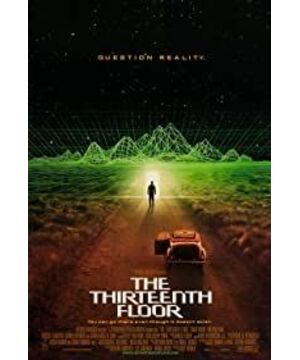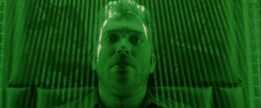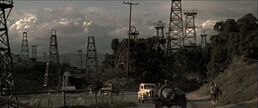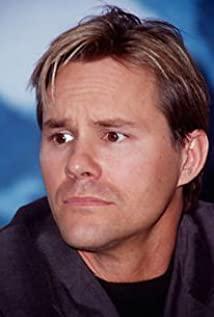■ 5bin
Borges' novels always make bold speculations about the existence and situation of human beings, and question reason and knowledge. If we compare the world constructed by knowledge and reason to a wall, there are too many perforations and gaps in this wall. But rational people have become accustomed and willing to accept this wall, turning a blind eye to these perforations and gaps or taking it for granted. Borges is like a bricklayer repairing this wall. From the perspective of his novels, he is irrational and mysterious. It should be noted that irrationality is not the opposite of rationality, but a further improvement of rationality, which can be called something like "post-rationality". Irrational accommodates more things that rationality has not accommodated. Borges is always calmly narrating, unconsciously, all the reality, ourselves, the world are all installed in his narration. The world is broken up and reorganized in his narration, he is subverting, and at the same time depicting the face of the world in his heart.
In "Circling the Ruins", Borges constructs the world from a single, real one to multiple, unreal ones. Like the mutual reflection of two mirrors, the kind of wonderful, endless loop. "I" was real at the beginning, and had no doubt about the authenticity of my own existence, but in the end of the novel, it completely overthrew all of this, and the authenticity of the entire world was subverted. This makes the reader himself fall into a role set by the novel. The fate of "I" is the fate of all human beings. When "I" finally realized that I was just a created phantom, living in another "God" dream, the shock the reader got was really about myself.
"I" is not only the created phantom, but at the same time the God who created the phantom, which can extend up and down infinitely. The God who created "I" is created, and the phantom created by "I" continues to create... presenting a multidimensional space. In this structure, the human body is irrelevant. In this structure, the only real thing that can be grasped is the soul, memory and the like.
In the description of the theater lecture, Borges seems to be deliberately letting people come out of certain, complicated knowledge. In this description, "I" has no good feelings for those students who study hard and take exams, respect and accept all previous theories, and think that they are not something to be made. For those students who are rebellious and come up with novel and bold ideas, they value it very much, feeling that they can truly touch the universe. What Borges wanted to express is that people who rely on knowledge and reason to think that they have caught something, actually did not catch anything. These theories and knowledge have no effect at all when explaining these ultimate questions about mankind and the universe. This knowledge is practical, but only practical. Any theory is a hypothesis, and we cannot use them to reach the origin of all problems. When a question is asked endlessly, we find that we can only end it with something other than knowledge.
For thinking about reality and illusion, Borges echoes the distant East, the man named Zhuang Zhou, a long time ago. "The former Zhuang Zhou's dream was Hu Die, and Hu Die was vivid and vivid. Self-confidence is suitable for you! I don't know Zhou Ye. Suddenly, I don’t know Zhou Ye. I don’t know Zhou’s dream is Hu Die and Hu Die’s dream? Hu Die’s dream is Zhou Yu?" (quoted from Zhuangzi ·Inner Chapter·Qiwulun").
In the age of barren science, people believed in ghosts and gods, reincarnation, and things that sound mysterious to modern people. Today, we are ruthlessly criticizing these phenomena. In those times, there were no fewer people holding this concept than those who believed in science today. According to today's statement, the ignorant of that era accounted for the majority.
When science fiction films describe the future world, this mysterious artistic conception seems to have returned.
Movies such as "The Matrix" and "Thirteenth Floor" have a common feature, which subverts the authenticity of existence, or more accurately, subverts the view of existence of our time. In these films, human consciousness becomes the only thing that can witness existence. Because whether it is the human brain rafting in the information turbulence in "The Matrix" or the consciousness of the characters in the virtual program in "13th Floor" attached to the "real" world of the programmer, it makes people feel that the flesh It's just a puddle of mud. Since the soul can travel anywhere and attach to different bodies, how can the body become a witness of our existence, because it is not unique, but only the soul is unique. Because the soul can think, the soul has memories of the past. The death of the soul means the abrupt cessation of an existence.
The fragments of these feelings made me suddenly understand something about religion, idealism...It
can be assumed that history is fluctuating. At a certain moment, when science is barren, people have a keen perception of existence. When science has developed to a certain level, many "images" are produced, and these complex "images" obstruct our understanding of existence. Just like a blind person, he has no visual perception, but he is extremely sensitive to sounds, and his sense of touch is more sensitive than ordinary people. A healthy person has many ways of perception, but is disturbed by too much information, and cannot perceive or very weakly perceive something that a blind person can strongly perceive.
Author: 5_bin 2006-5-14 19:37 Reply to this statement
------------------------------------ --------------------------------------------
2 Reading Borges The impression of
science in the novel is similar to restoring the eyes of the blind. The "scientific" people who have regained the light are confident in what they see, but forget what they have previously "seen" with their ears and hands. . . In the end, I simply believe that those things that I have "seen" in the past simply don't exist.
Science continues to develop, and the eyes can hear things, and the eyes can actually touch... After a long process of scientific evolution, they finally met their long-distance self at an intersection of time and space. (
Using the fantasies in the previous two movies to predict, it can be understood in this way) Thinking about the existence of human beings does not need to rely on any technology, only a thinking person. In the era of material poverty and backward science, I don’t know how many practitioners. We have exhausted the meaning of people throughout their lives. These thoughts are concentrated, simple, and attacked by the nail on the head.
On the contrary, today. Most of us have no time to think in this way. What we are hugging is a building built on a foundationless sandy ground. We believe in the existence of the 182nd floor, but we can’t come up with evidence that the 181st floor is a building. Above 180. However, we saw that one floor was clearly marked with the words "182th floor"... We said impatiently that this is definitely the 182th floor... People who had trouble kept looking for the floor below, only to find that this building was built. On a bottomless foundation, his roots have been deeply buried in the sand, and we have lost the first layer.
Yes, the sand tower above is a metaphor for reason and knowledge. The marked building number means that the building contains science, and we think it is very real and practical, so we think it is really the 182nd floor. But in fact, no one knows if it is. A theory is like a pile of towers. If we want to prove something is right, we must use what we have already proved as an argument. Such layers are stacked, but there is always an argument that is absent, which is at the root-the foundation.
Someone said that there is actually no first floor at all, because there is a "-1 floor" under the floor marked "1th floor"... and it is more likely that there are -2, -3, -4... extended emptiness. .
Reasonable people thought about it for a while, and they felt that it was meaningless. They were very confident on the surface, but in fact declared with a guilty conscience that the 182nd floor is the 182nd floor. They feel that this answer will satisfy us. It will make people concentrate on building the 183rd, 184th, and 185th floors instead of digging out the memories in the sand. Vision... This impulse spurs them to build buildings and put up floor number signs.
Whether the above analogy is appropriate or not, it should be able to express some of my feelings.
We always like to identify everything in our lives by experience rather than thinking. And these experiences are nothing more than what the eyes, nose and ears hear, see, smell, and touch. When asked a very simple question, we will realize the limitations of this method of understanding. Someone asks "What's the outer side?" That is, the question of what's the outer side of the universe. A person at work would put down his briefcase, sit under a tree and think for an afternoon, and then say: "I don't know, it is infinitely inflated? But I haven't seen anything like this around, I can only think so... …How do I think that the outside of different universes is the universe, if there is a limit, then beyond the limit..."
Borges’ "Circling Ruins" gave me a wider space and liberated me in dimensions. . In this novel alone, a world is constructed that is like two mirrors reflecting each other. If you have not seen infinity, then try to do this. You are surprised to find that there is also infinity in reality. It is the two mirrors and the universe.
The creator and sentient beings in "Round the Ruins" are one, creating and being created at the same time. Because of this, the differences between them are resolved. Just like a number axis, a world and a world are linked together, as if the two adjacent scales on the number axis, 0 creates 1, and 1 creates 2. The structure of the creator and sentient beings is only presented in one scale, placed in the overall situation, then There is no difference. . . As a result, an infinite world of creation and creation unfolds like a chain...
Except for "Circling the Ruins", Borges is tracing some eternal things in other novels. That is, infinity, contingency, and diversity... For example, the first page and last page in the book "Book of Sand" can never be found, and you can't turn to the next page of the previous page, and don't want to turn to the same page for the rest of your life. Book. The labyrinth formed by the infinite nodes in "The Garden of Forking Paths". "The moment before" we may be close friends, the next second I am the one who shot you. The combination of infinite nodes derives countless parallel time and space, and different scenes are happening in each time and space. This metaphor of diversity is like "recursion" in mathematics, exhausting all possibilities...
Because of the metaphors of these eternal things, Borges often uses something to symbolize some of its characteristics in his novels. For example, dreams, mirrors and labyrinths that appear repeatedly in his works. They are all to metaphor infinity, contingency and diversity.
Author: 5_bin 2006-5-14 19:37 Reply to this statement
View more about The Thirteenth Floor reviews











